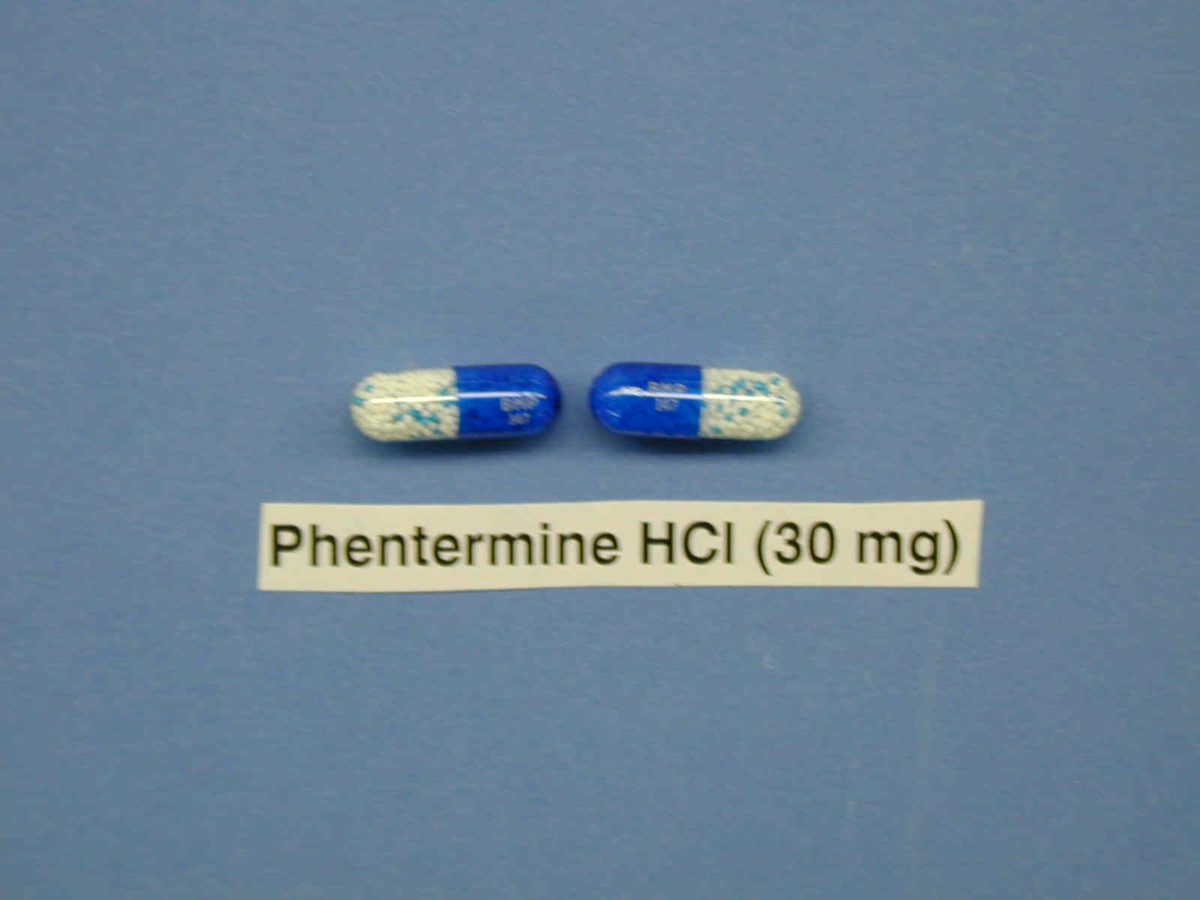
What Is Phentermine? Phentermine is an appetite suppressant used in treatment of obesity. It belongs to the amphetamine and phenethylamine class of drugs. Phentermine decreases appetite by acting on the central nervous system. It stimulates the brain to release chemicals that control appetite. Phentermine is used together with diet and exercise to speed up the loss of body weight in overweight and obese people. This drug is commonly prescribed to people with risk factors for heart disease, hypertension and diabetes.
Phentermine Mechanism of ActionPhentermine acts on the hypothalamus area of the brain, stimulating it to secrete the neurotransmitter called norepinephrine that helps to regulate appetite. In addition to acting on the brain centers, phentermine also stimulates the release of epinephrine, also known asadrenaline that activates the breakdown of lipids in fat cells. Also, phentermine, to some extent, stimulates the release of serotonin and dopamine, neurotransmitters that play a role in regulation of appetite.
Phentermine Dosing
The FDA recommends a short-term use of phentermine, approximatelly up to 12 weeks. The drug should be used in combination with low-calorie diet and exercising. Phentermine is taken in a dose of about 30 mg once per day, usually in the morning, since, if taken in the evening, it can cause insomnia.
Phentermine ContraindicationsPeople who are allergic to any ingredient of phentermine or other sympathomimetics should not take this drug. People who have taken MAO inhibitors such as phenelzine, furazolidone and phenelzine, or dexfenfluramine, fenfluramine, guanethidine and guanadrel in the last 14 days should not take phentermine due to possible life-threatening side effects. People with medical conditions such as severe hypertension, hyperthyroidism, glaucoma, heart disease or coronary artery disease should not use phentermine. Also, people with history or drug or alcohol abuse or who are in an agitated state should not take phentermine.
Before taking phentermine, a person should tell his doctor if he is taking any prescription or over-the-counter medications, herbal products or nutritional supplements. Women who are pregnant, planning to become pregnant or are breastfeeding should consult their physician or pharmacist before using phentermine.
Also, people with allergies to food or medicines as well as those suffering from a brain or spinal cord disorder, hardening of the arteries, elevated blood pressure, diabetes, high cholesterol or lipid levels should consult their doctor before taking the drug.
Interactions
Phentermine used in a combination with other diet medications such as dexfenfluramine, fenfluramine and furazolidone or MAOIs can cause severe reactions such as increased blood pressure, slow heart rate, increased body temperature, intense headache and even a rare fatal lung disorder.
Phentermine should not be used along with antacids or carbonic anhydrase inhibitors as they may slow down the excretion of phentermine.









-Uses%2C-Side-Effects-And-Risks_f_280x120.jpg)







Your thoughts on this
Loading...